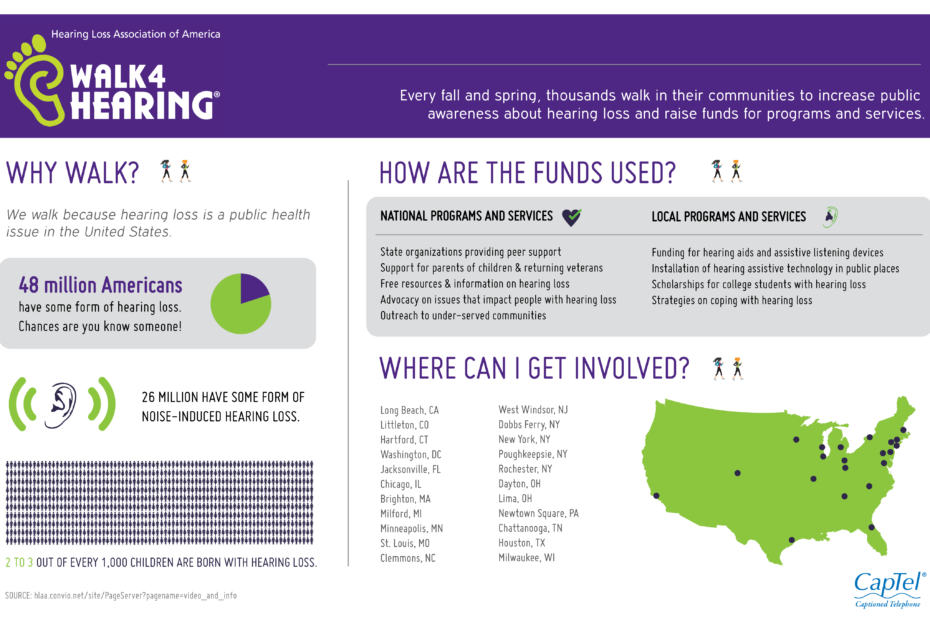Hearing Loss Association of America Walk4Hearing
The Hearing Loss Association of America (HLAA) hosts Walk4Hearing events in both the spring and fall each year. The walks are held in several cities around the country and are attended by thousands of people each season. Walk4Hearing is one of the largest movements of… Read More »Hearing Loss Association of America Walk4Hearing
